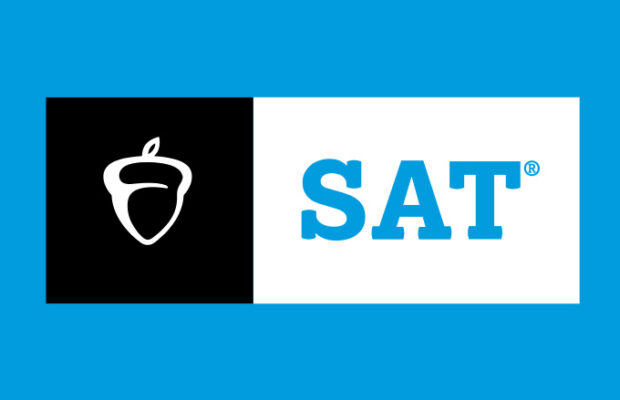Letter to Editor: Banning some sites does not ensure complete Internet safety
Lauren Bannon
CFHS Senior
A seventeen-year-old student walks into the library and cheerfully greets a librarian. Amiss nothing is. She sits down to a computer and logs onto her server. All it takes is a few clicks of her mouse and she’s on Craigslist. A few more clicks and she’s viewing accounts made by men seeking women. These men advertise themselves as desiring “friends possibly leading to more,” “female masseuse wanted,” and “like bondage?” Without much effort and also the assistance of the Cedar Falls High School Library, this young lady has set up a meeting with one of these men. Alarming, right? Well, at least she can’t log onto Pinterest or Twitter. Setting up this meeting is something deemed only slightly worse than pinning or tweeting in class.
In my humble, not quite yet high school educated opinion (correction: limitedly educated opinion—half the sites are blocked on school computers) technology censorship has a place in schools, but it has gone too far. Technology censorship—suppressing what students can view on the Internet in order to save the children, but what happens when it’s not working?
“WARNING: Internet access to the requested website has been denied based on your user profile and Cedar Falls Community Schools Internet Usage Policy.” Almost every student has tried to access some sort of social networking site and has seen this irksome message upon the screen of the high school computers. Our favorite, highly dangerous social networking sites have been given the boot by the administration—Facebook, Twitter, and more recently Pinterest and Tumblr to name a few. Exasperating, yes, but being denied access to social networking sites on the computer won’t kill us because we can just turn to our cell phones, many of which now have internet access and can be easily hidden from teachers or used outside of class. The real thing that makes a CFHS student’s blood boil is when he or she is trying to do a homework assignment and the school’s filter blocks the legitimate site he or she wishes to use simply because it uses the word blog or because it could be deemed “offensive.” Case and point: when researching what topic to do for a persuasive essay, I typed “banned words New York” into Google. The first thing to pop up on Google read: “News for banned words New York.” I noticed that the second article down was related to CNN, and knowing that it was a nationally known and accredited news source, I clicked on it. To my dismay, I was not able to access the page because it was a CNN blog. Sure, I could trust The Bellingham Herald (the next article down) to give me the information, but I was not ready to take no for an answer. Oh the irony, banning the blog I wished to read about banned words. I’d bet George Orwell is rolling over in his grave—Big Brother has struck again.
This topic made me angry enough to want to make a ranting Facebook status. Though I’m an avid Pinner and I’m disappointed I can’t get on Pinterest during my release, I was more upset that I couldn’t view that article. This caused me to ask some questions. First, I asked an administrator who made the rules as to which sites can and can’t be viewed. All he knew was that there was some sort of committee that made the decisions… it seemed fishy to me. I asked a librarian the same question and she too was unsure. All she knew was that we had switched to a new program and gave me an email address. Since I had her attention, I also asked about not being able to even search the word blog on Google without that demon message popping up. She didn’t believe me. At this point I was highly suspicious, and my inner Nancy Drew was ready to do some super sleuthing. Luckily, the email given to me was for Shane Paige, the supervisor for CF’s technology services, and he was willing to participate in my interrogation. I was disappointed there was no need to call in the Hardy Boys and investigate but also highly relieved that I finally had answers. Paige said that the computers are set at CIPA (Children’s Internet Protection Act—save the children!) mode, which is a legal requirement, along with some additional social networking sites that are part of the school’s acceptable use policy and sites requested blocked or allowed by staff. All data we research on the school computers goes through a filter. The article can be completely clean, but if someone comments something offensive, the F word for example, the whole page will be blocked. It’s not as if the word passes many of our lips daily, why in the world can we not read an article with it as a comment?
Now that I know the details regarding the school’s filter, my anger has lessened somewhat. I can understand having very strict filtering for the elementary schools and even the junior highs, but in high school I feel we should have more freedoms. I understand they must have guidelines and catch words, but what if it is a legitimate site or the words are necessary for the sake of the paper? It seems a little ridiculous that if I wanted to I could say “damn” in my Comp and Rhet paper, but I can’t read an article that someone has only commented on using the very same word.
Here’s how it is: Internet censorship does indeed have a place in schools, but it has been taken too far. As a high school student and now a legal adult, I feel I should have the right to view what I’d like on the school computers, within reason of course. In elementary school and junior high we sign an Acceptable Computer Use form. This is a policy put out by the school board in hopes that the rules will be followed. By high school, the policy is a given and we no longer must sign. At this point in our education, students should know what is acceptable to access while in school and should be granted the freedom to search the Internet. The more access we have, the more freedom we receive; the more freedom we receive, the more access we have. If a student does not follow the guidelines, then his or her privileges should be revoked, but do not take the freedoms from students using the Internet to better their educations or to access social networking on their own time. By high school the filter should be lightened to keeping out X rated and extreme sites, and students should use their common sense and the Acceptable Access form as guidelines for their internet searches or deal with the consequences. I speak for all Tweeters when I say, give me Twitter, or give me death!









You must be logged in to post a comment Login